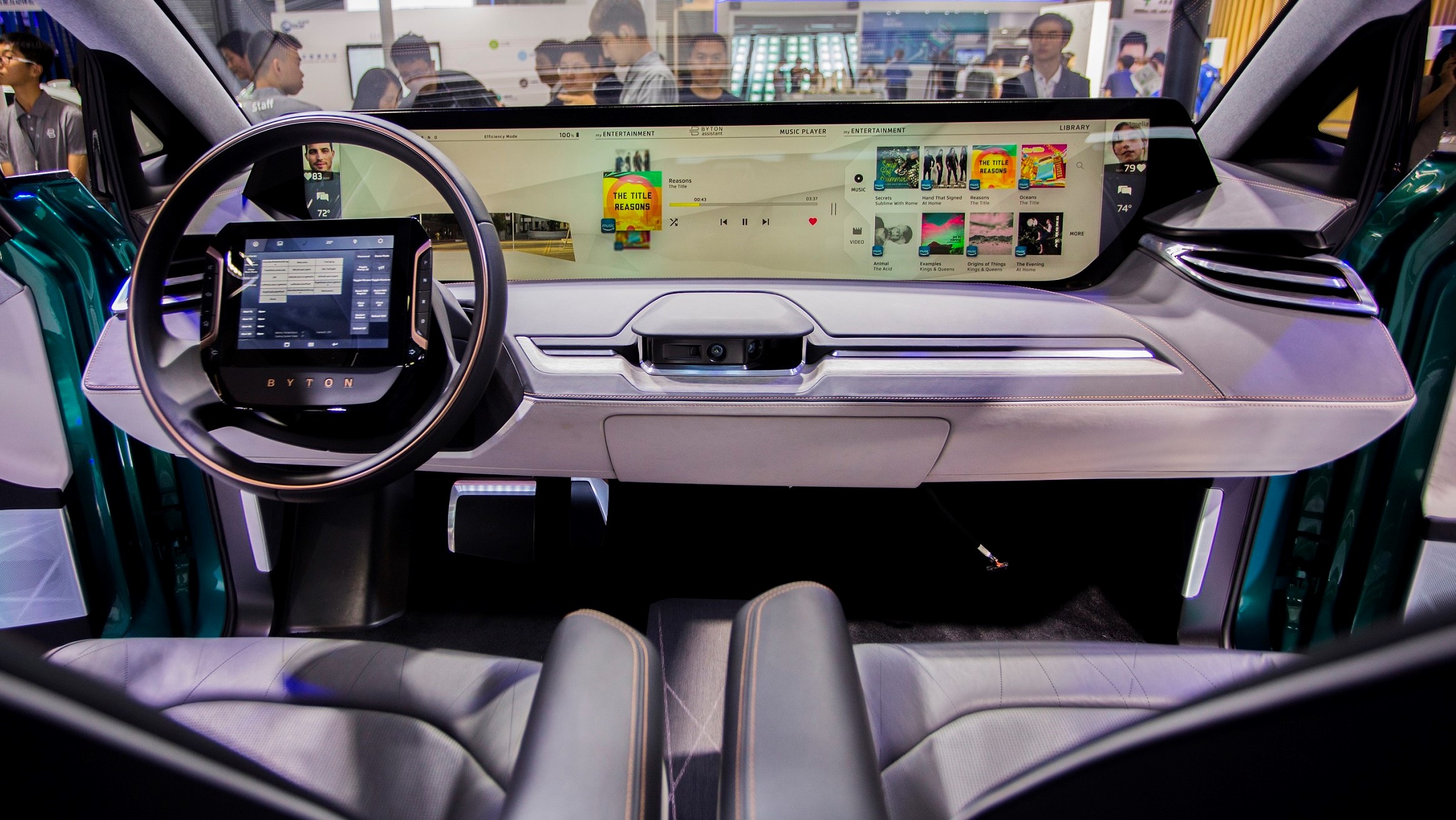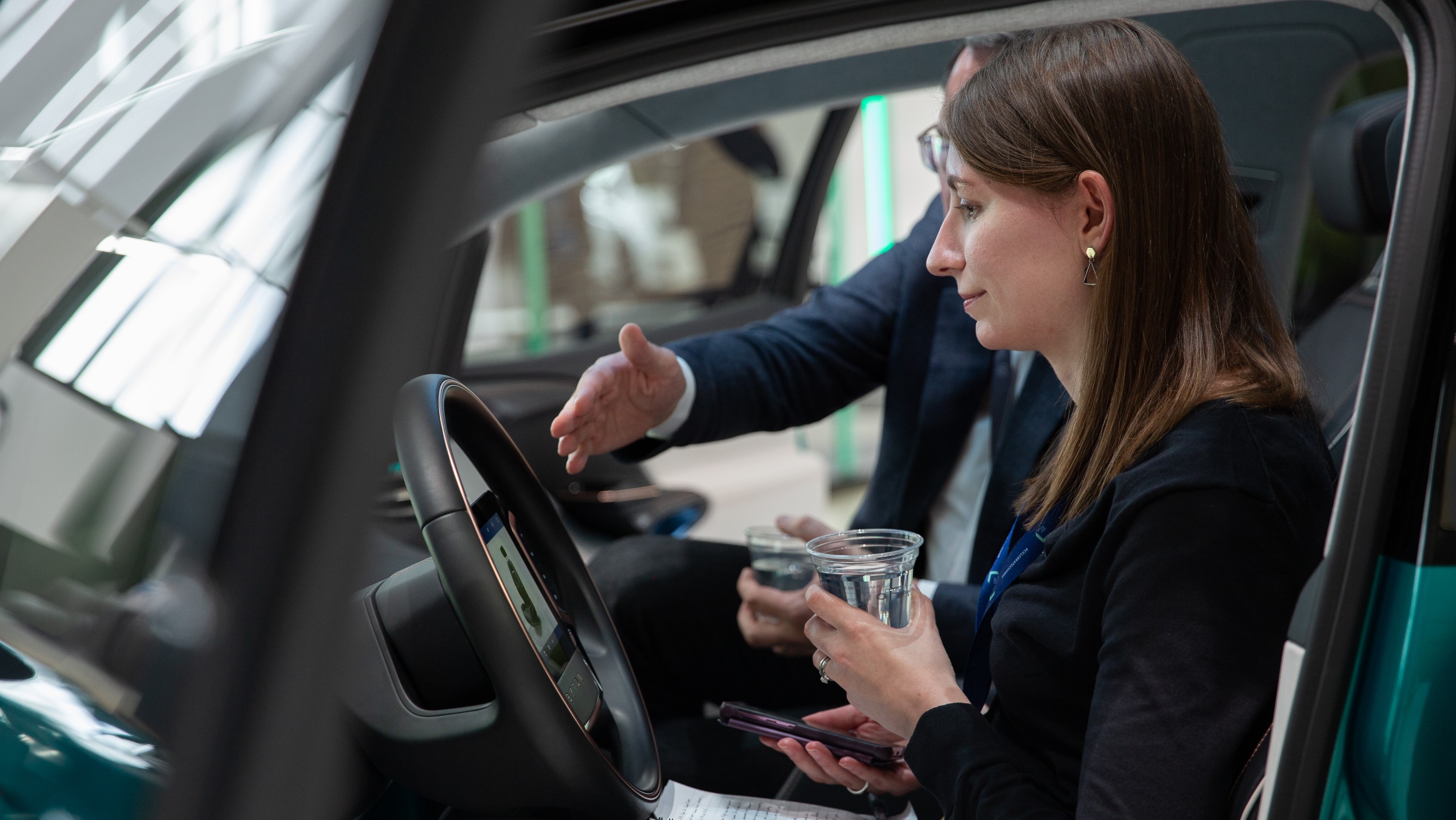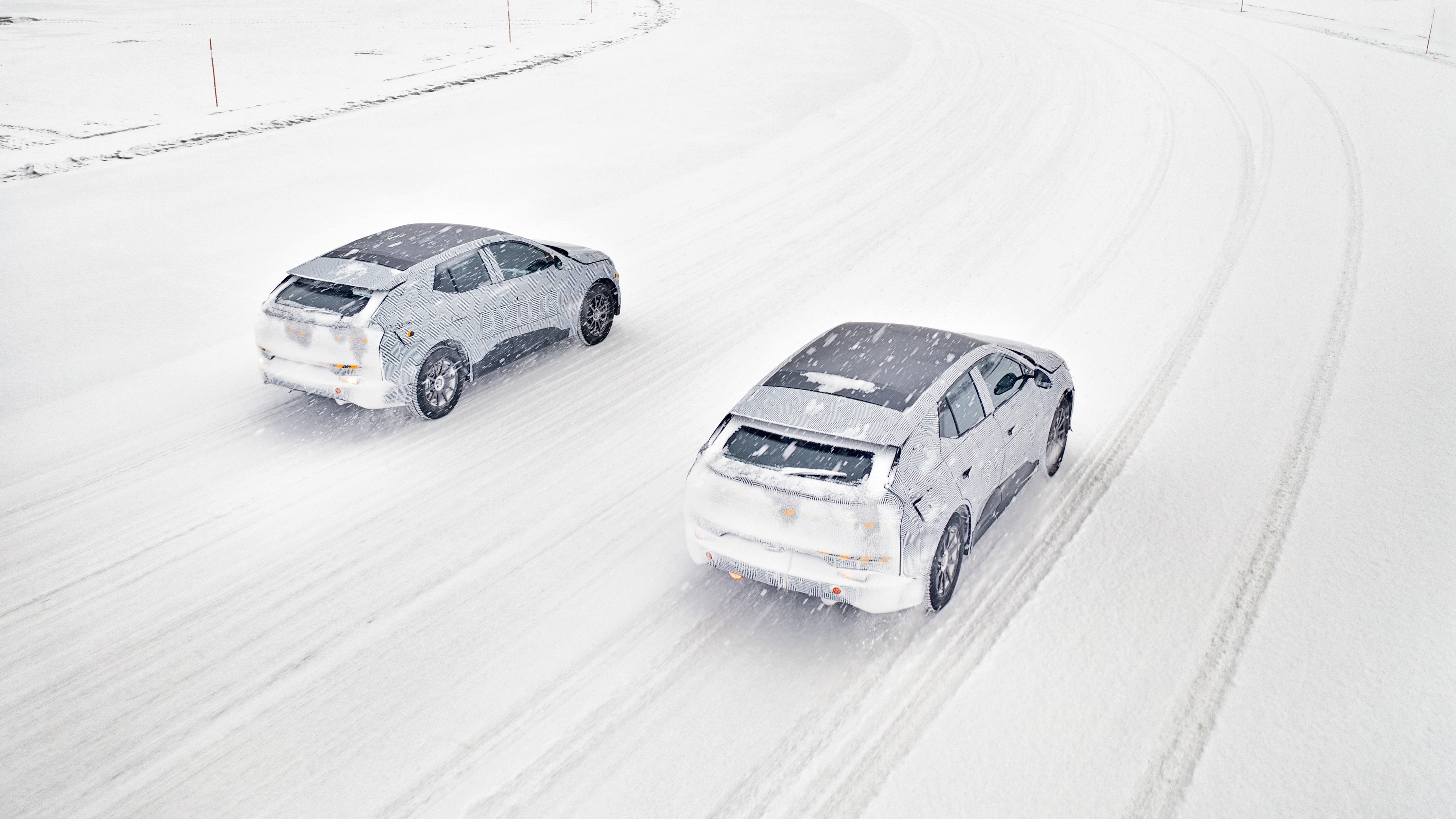
"We called it a ‘smart EV’, and that was really the vision that we had – to build a kind of digital living space," Dr Daniel Kirchert, CEO of electric car startup Byton, tells TechRadar at GreenTech Festival in Berlin. "A smart device on wheels."
Byton whipped the wraps off its first model, the M-Byte at CES 2018. The M-Byte is a premium vehicle, the crowning glory of which is an enormous 4K screen that spreads across the full width of the dashboard, eliminating the need for conventional instruments and dials.
With the finished vehicle now tantalizingly close to release (the first production M-Bytes are due to arrive with their proud owners at the end of 2019), we were keen to learn more about the company's progress so far, and its vision for the future of driving.

"Byton was founded three years ago with a very small team," Kirchert says, sitting beside us in an M-Byte concept vehicle at Byton's booth on the show floor.
"The main team members joined from BMW – they left BMW to found their own company. And the big opportunity was to found a company on a white piece of paper – to say ‘what do we need to do? Where do we need to go to find our talents?’ To have the perfect setup for an automotive company, not only for building and selling cars, but also for making money with digital services, with app mobility, peer-to-peer sharing opportunities and so on. A bigger approach.
"Then we started with the initial investment, and the idea was to create a global company. So we have our concept and design studio in Munich, Germany, we have our R&D center in Santa Clara, California, and we are building our manufacturing plant in Nanjing, China. It’s almost finished. We have a prototype lab there (they produce our prototypes for testing) and the production factory will be finished in a couple of weeks."
Giving back your time
The show-stealing 48-inch screen isn't the only display in the M-Byte. There's also a touchscreen in the center of the steering wheel, plus one for each of the rear passengers.
Get daily insight, inspiration and deals in your inbox
Sign up for breaking news, reviews, opinion, top tech deals, and more.
These are coupled with cameras equipped with facial recognition, which will identify you as you settle in, and load your personal profile from Byton's own cloud servers, adjusting seat position and screen content to suit you. There's also voice control, which Kirchert says will make the whole driving experience much more smart and relaxed.

"If you think about a lot of people in their premium cars taking out their smartphone to do navigation and putting it here" Kirchert says, gesturing to the futuristic dash, "there’s really a gap in what current cars can offer."
There'll be no such phone-fiddling with the M-Byte. Instead, the curved display can show a huge high-resolution map for simple navigation, with the car's software offering recommendations for things to do and places to eat, based on what it's learned about your preferences.
"And of course it will also be ready for autonomous," says Kirchert. The production cars will all have the necessary hardware for Level-3 autonomy, with software upgrades scheduled for a gradual rollout. Level-4 autonomy is on the cards too, but will take a little more time.
"So when we have, for example, highway driving, which is definitely already the standard of the technology in this car, then you would be able to do something on that screen like working, making video calls, or something like that. And that’s ultimately what this is – this is a car ready for the age of autonomous and shared mobility."

So what does that mean for tomorrow's drivers? Will the car still be a means of transport, or will it become something else in 20 years' time, filling a different role in our lives?
"I think there will still be a kind of mobility, just A to B," says Kirchert, "but if you think about it, most people are commuting every day, maybe one to two hours per day, it’s really down-time, especially if you’re driving. It’s really lost time in your life, and it’s very meaningful actually to say we want to give back that time.
"We want to make the car a digital space and allow you to do what you want, and by autonomous technology, but also by having a complete new user experience."
Membership, not ownership
These time-saving features won't just be available to M-Byte owners – in keeping with GreenTech's motto 'celebrate change', the car is also a prime candidate for vehicle-sharing, which will help reduce the number of vehicles on the road.
"A privately owned vehicle on average is standing 95% of the time, only moving 5%, so it’s a big waste in that sense," says Kirchert. "Especially the young generation in the big cities around the whole world – they care less about owning a car, but they want to use a car.

"But the experience in the car will still be quite important from my point of view. That’s also why we designed this car not just as an individual car, but also as a shared car. [...] So you can imagine you don’t need to be a Byton owner, but you can be a Byton member.
"Via your smartphone, you can go wherever around the world, open a car, get in, get recognized by the face, your personal profile is downloaded – it will feel like your own car. It is a personalized experience."
We won't be seeing the car on the show floor at CES Asia next month. Instead, the company will be gearing up for the M-Byte's world premiere, where it will announce the car's pricing, plus a lot of product information. "We will also launch our next generation app," says Kirchert. "In the app you will be able to experience the product, order the product [and] make the down-payment."
The company has already received around 55,000 reservations based on the concept car alone, so it seems the 'smart device on wheels' is an idea that people are really willing to invest in. It'll be interesting to see if automakers more widely follow suit (even if their screens are more modestly sized).

Cat is TechRadar's Homes Editor specializing in kitchen appliances and smart home technology. She's been a tech journalist for 15 years, having worked on print magazines including PC Plus and PC Format, and is a Speciality Coffee Association (SCA) certified barista. Whether you want to invest in some smart lights or pick up a new espresso machine, she's the right person to help.